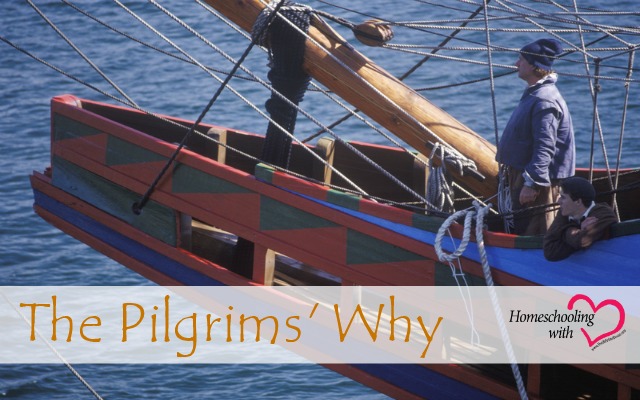The Pilgrims’ Why


Sea waves lapped cold against the rocky, English shoreline. The child slipped her palm into her father’s large, roughened one and followed his gaze across the billows. Unseen to her eyes lay a land, a wilderness, across the great Atlantic, different and stranger than anything she had previously known. Yet in that land was a mission field – her mission field – for in that land lay her new home.
Few of us can truly grasp what drove the men, women, and families, who we now call Pilgrims, to migrate to our future America. As the 397th season of American Thanksgiving comes upon us, there is much about the Pilgrims, unknown, untouched by most history books that we, as God’s people, in a moral and spiritual wilderness, can glean from. Let us return to the Pilgrims own words to see what mighty things of old our Lord has done.
Why?
The most powerful pull of any story: why did they do it? Why do men leave their livelihood, sell their possessions and spend their last shilling to load their wives and children on a ship that is as a mere plaything to the ocean waves? Why do mothers leave every earthly comfort to follow their husbands on such a journey?
First, the Pilgrims saw that their own survival was at stake. Having first settled in Holland for twelve years before embarking to America, they had conquered difficulties we can only imagine. While they overcame them, the challenges kept others, who would have joined them, from making the same decision. Also, the parents, themselves, had aged so early through their labors that they knew a premature death threatened to scatter their tiny congregation.
William Bradford, their governor in New England for fifty years and a great historian, gives a transparent view into this important why:
“As necessity was a task-master over them, so they themselves were forced to be, not only over their servants, in a sort over their dearest children…Many of their children, who were of the best disposition and who had learned to bear the yoke in their youth and were willing to bear part of their parents’ burden, were often so oppressed with their labours…But still more lamentable, and of all sorrows most heavy to be borne, was that many of the children, influenced by these conditions, and the great licentiousness of the young people of the country, and the many temptations of the city, were led by evil example into dangerous courses, getting the reins off their necks and leaving their parents. Some became soldiers, others embarked upon voyages by sea and others upon worse courses tending to great dissoluteness and the danger of their souls, to the great grief of the parents and the dishonour of God. So they saw their posterity would be in danger to degenerate and become corrupt.”
Little has changed, has it? Nearly four hundred years later, Christian families still face the same dangers. We also still have the same God. And our children still have the same future. So, let’s run. Let’s not grow weary. Let’s fix our eyes on Christ and charge forward into our mission field with our children.
Source: Of Plymouth Plantation by William Bradford, rendered into modern English by Harold Paget in 1909 and published by The Vision Forum 2009: p. 20
Kenzi Knapp is a follower of Christ, homeschool graduate and student of history. A fourth generation Missourian she enjoys writing about daily life enrolled in Gods great course of faith and His story throughout the ages at her blog, Honey Rock Hills.











































